![Chasing Points: A Season on the Pro Tennis Circuit by [Howe, Gregory]](https://images-na.ssl-images-amazon.com/images/I/51vOXpG2LgL.jpg)
By Scoop Malinowski
You probably have not heard of Gregory Howe. He left his job as a teacher to play pro tournaments to try to earn an ATP world ranking and then wrote a book about his catalog of experiences, titled “Chasing Points” published by Pitch Publishing. Howe was 34 when he took on the challenge and made good on his quest and earned ATP points. He also shared a court with Dustin Brown, Sergei Stakhovsky and even played qualies in ATP main tour events. The book is a fantastic read about a very special journey through the dark corners of the ATP world tour and highly recommend it to everyone…
At 34 years of age, Gregory Howe quit teaching in London to chase his childhood dream of becoming a world-ranked tennis professional. He started his year-long journey in the minor leagues, playing across four continents, as far afield as Bangkok, Kampala and Lahore, initially struggling against younger, fitter aspiring pros. Breaking through to the elite ATP tour, he got within volleying distance of some of the greats of the modern game. Eventually, he managed to juggle competing on the ATP tour with holding down a nine-to-five job. Along the way he encountered almost everything the tennis world has to offer, from rising stars racing to the top, to players whose hopes are slowly being shattered. Chasing Points: A Season on the Pro Tennis Circuit offers a rare behind-the-scenes glimpse into the life of a touring tennis professional from the perspective of a real ‘underdog’.
First Tennis Memory: First time I watched Wimbledon. It was 1984. My family were visiting my grandparents in Tasmania (island underneath mainland Australia). It was winter and absolutely freezing. My brother and I were sleeping in the living room, so we secretly turned the tv on in the middle of the night, hid under the blankets, and watched Paul Annacone’s ‘fairytale’ run and McEnroe destroying his opponents. It was magical.
Tennis Inspirations: Guys from the 1980s when I grew up – Yannick Noah and Mikael Pernfors to name a couple. But also the players I played with in the juniors in Australia who ‘made it’ – Pat Rafter was the standout.
Greatest Moment Of Your Career: Without a doubt, finally achieving making an ATP point, and therefore becoming an ATP ranked pro, after two decades of trying. This happened in Carthage in the North African nation of Tunisia.
Most Painful Moment Of Your Career: When I ripped my abdominal wall (hernia) halfway through an ITF Futures tour of Africa. I’d waited so long to play there and it ruined my whole trip.
Favorite Tournaments: I played a Futures event in Ho Chi Minh, Vietnam, in 1999. It was an amazing event. Even though it was a Futures event, they had paying crowds for each night session. Part of the stadium had red seating only for members of the communist party, and on the adjacent part of the stadium there was a platform with a captured American helicopter from the Vietnam war. The atmosphere in the whole city was electric. I returned a few years ago for a holiday, and they’d gone through an economic revolution – there were western coffee shops everywhere and it just wasn’t the same.
Funny Memory/ Embarrassing Memory From Your Career: A few years ago I played an event in Saudi Arabia. Visas to the Kingdom are virtually impossible to get, but all players got special government ‘sports’ visas. When I went through customs in Riyadh Airport, they saw the ‘sports’ visa and my British passport (I have 2 passports). All of a sudden, every custom official ran across to see which pro footballer (soccer player) had arrived to play in the Saudi league. I had to tell them – “Sorry, tennis player only.” They laughed, but were pretty disappointed, which made the whole incident even more embarrassing for me.
Funniest Players Encountered/ Strangest opponent: Without a doubt, the dreadlocked German Dustin Brown – a seriously cool guy and an absolute outlier. I played him in a Futures event in Holland many years ago when he still represented Jamaica. On the first point of the match his return was a back-spinning drop shot that bounced in my court before spinning back over the net. During the match he killed 4 balls. His serve was so hard and flat, and his strings so tight, that he literally split the seams. I felt like I was a spectator watching a show – I had no control over anything going on. I ended up losing 7-6, 6-2.
Fiercest Competitors Encountered: I played Pat Rafter many times in the juniors. Back then, he was really small, so he had to earn everything the hard way – really fighting for every point by chipping and running. It was only when he was about 17 or 18 that he had a growth spurt and became over 6 foot. By the time his physique and game matured, he was already so mentally tough.
Favorite Players To Watch: These days I like watching Aussie journeymen like Jordan Thompson and Matt Ebden. I kind of relate to these kind of players. And I find Frances Tiafoe good to watch – I like the rawness of his game and his athletic ability.
Why Do You Love Tennis: Where do I start – it has given me so much. I’ve traveled to 50 countries to compete (I just counted them); most of my friends play the game; and to prepare for, and then compete in tournaments is the thing I love the best.
Best You Ever Felt On Court, Your Best Match: As I’m not (even close to being) a top pro, then my best match is pretty obscure…Tehran, in Iran. I beat a Czech player ranked in the 800s. The guy had an enormous serve, and at the high altitude I couldn’t touch it. I was being completely outplayed, but I hung on, saved match points and won in 3 sets. It was the only time I made it to the Q-F in a pro event. I played for three decades, and this match was the summit of the mountain, so to speak.
Future Tennis Goals/Ambitions: I would like to be able to compete in tournaments for the rest of my life. After that, any other on-court success is icing on the cake.

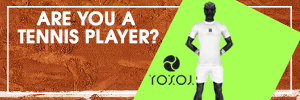

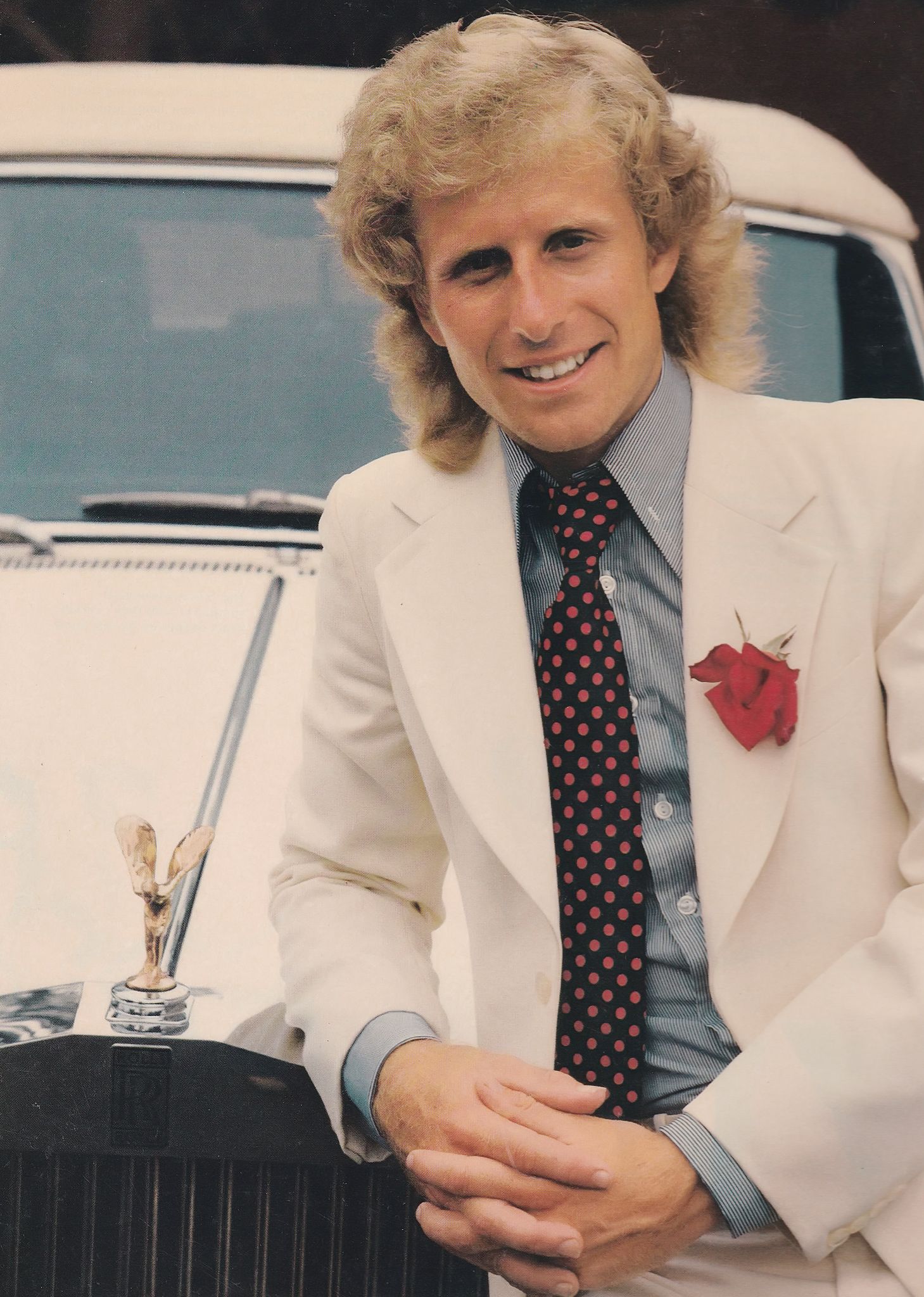
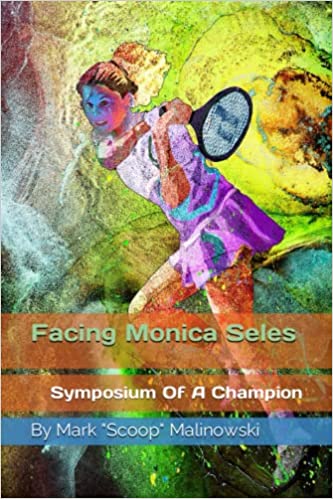
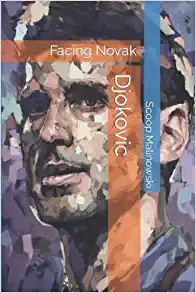
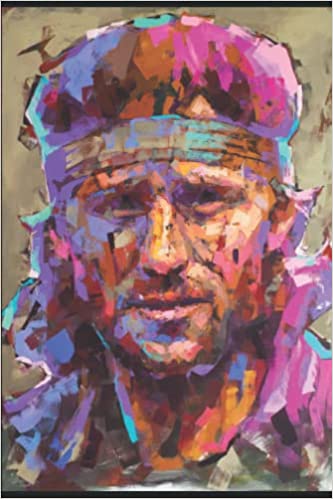
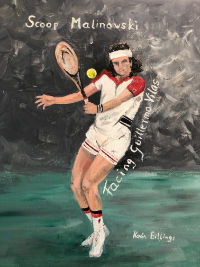
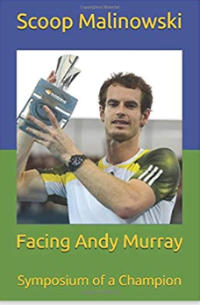
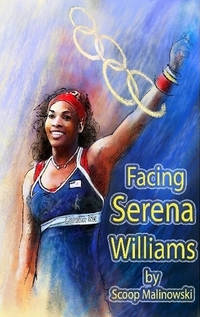
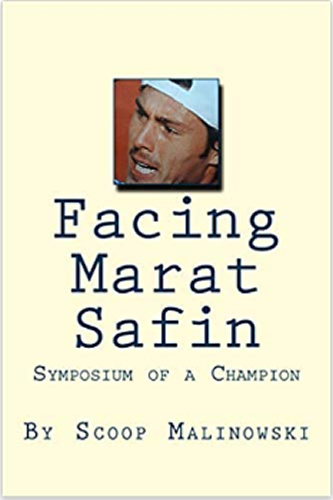
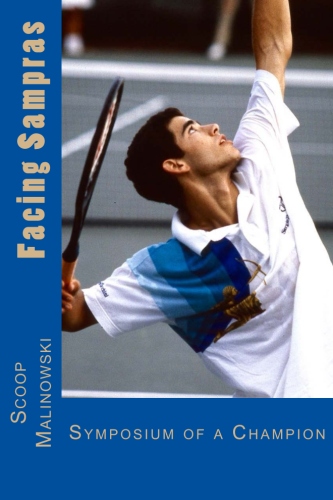
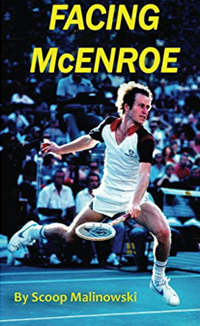
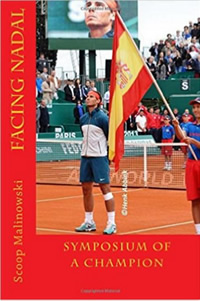
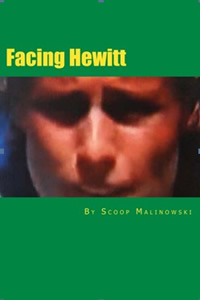
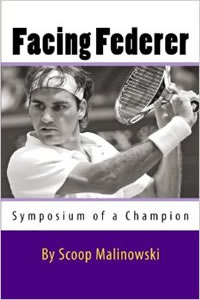
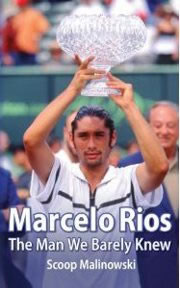

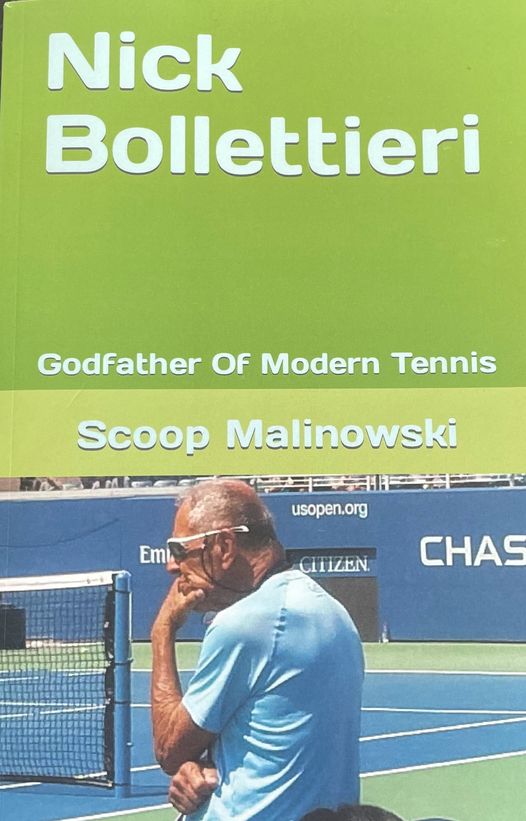

Jg · November 12, 2018 at 8:19 pm
Way to go Scoop, I loved the book too, after reading it I heard Gregory Howe being interviewed on the Tennis Files podcast, then I heard the next Tennis Files podcast where Mariban interviewed Leon Vessels, whonis a practice hitting partner with the pros at tournaments, it was interesting because Leon was in tennis clinics with my son so I saw him play a lot as a junior, he was a top junior, got a college scholarship but decided not to play, then picked it up again, I could see him taking the Howe route, although I think he may be a lot better, those 2 should have a match, I would rather see that than Nadal Federer!
Scoop Malinowski · November 12, 2018 at 10:01 pm
jg, it’s such an interesting, unique perspective of pro tennis, an angle that the media rarely focuses on. Fans get overloaded on Fed, Serena, Djok, Murray, Anderson, etc. It’s nice to learn about the other end of the spectrum. Howe’s stories are a lot more interesting than a Venus interview or a Nishikori interview. I hope this important book gets a lot of coverage and interest because it deserves it.
H · November 13, 2018 at 8:08 am
Scoop, I enjoy hearing about “the other end of the spectrum,” so thank you for this Biofile.
Scoop Malinowski · November 13, 2018 at 8:25 am
Thank you H, glad you read it and liked it.
Dan Markowitz · November 13, 2018 at 8:31 am
Good job, Scoop. Did you read the book? If so, where’d you get it? On Amazon? It seems like this guy was not just your average tennis player who decided to try a run on the pro tour as he played Rafter as a junior many times and then played Dustin Brown on the pro tour.
I would like to read this book, but if you would cut to the chase, how successful was this guy? Did he win an ATP point? Did he get a ranking. i remember when I went out and played just four events on the pro tour in 1987, playing two guys who were #300 or so in the world, being in one tournament where Luke Jensen was the # 1 seed, there were a bunch of characters out there that I bumped into. One was like 35 years old, he had worked as a blackjack dealer in Reno, skinny guy with glasses, and he was convinced he was going to break into the top 50.
There was Mark Ozer who played for Princeton who was playing Satellites as they were known then and money tournaments all over France who I remember distinctly at the time was #521. Mark did eventually make it into the Main Draw of the US Open in doubles once. But the cast of characters was very interesting.
Chazz · November 13, 2018 at 8:48 am
Great find Scoop. Check out his ITF profile. He’s 47 now and played a couple Futures matches this year against a 21 year old and 18 year old.
https://www.itftennis.com/procircuit/players/player/profile.aspx?playerid=10010653
Dan Markowitz · November 13, 2018 at 2:29 pm
This guy didn’t exactly have a stunning career though. He won a total of five Futures matches, all but one against players with no ranking at all.
I like the line in the one review I could find on the book:
“Howe writes well (which, given his profession, he should) and the reader has an immediate empathy with him and his ridiculously ambitious aim.”
Howe maybe was or still is an English teacher. I can’t believe an educated person at 34 would really think he has a chance to make a living on the pro tour. This was a guy who’s probably a very good player thinking, “This is possibly my only chance of writing a book some people will read.” My hat’s off to him.
Hartt · November 13, 2018 at 3:13 pm
Will post this here because this seems to be the active thread.
Angelique Kerber has appointed a new coach, Rainer Schüttler, who has worked with Tipsarevic.
“Various German media outlets reported on Tuesday that Kerber, 30, will join forces with compatriot Schüttler – who reached the Australian Open final in 2003 – at the end of this month after her vacation.
Kerber was reportedly keen to have a German-speaking coach installed ahead of the 2019 season as she bids to add to her three Grand Slam titles.”
(Deutsche Welle)
catherine · November 13, 2018 at 10:16 pm
Thanks Hartt – Angie’s taken a while over this one, if these reports are correct.Her appointment of Fisette last year looks more and more like an impulse hiring. And that didn’t work out. I doubt she looked outside Germany this time.
Another GS is her aim, preferably Paris but that’s going to be difficult. Don’t think she cares too much about the other events. Also, Schuttler may well be her last coach, if their temperaments match well.
Now we wait for Simona’s choice 🙂
catherine · November 13, 2018 at 10:37 pm
Just adding – good thing about Schuettler is he’s an ex-pro player who reached 5 in the world. So he may have something substantial to add.
Also, I wonder if Fisette was really that good a coach. Angie’s Wimbledon win was a triumph for her – mentally, emotionally – apart from that she had a pretty indifferent year with a couple of shocker losses. She’s No 2 but she’s not playing like a No 2. However we feel about the way it was done she was right to dump Wim.
catherine · November 14, 2018 at 3:04 am
When the novelty wore off with Fisette Angie reverted to her losing frame of mind and predictable style. I couldn’t see any changes to her technique overall, or none that lasted long enough to allow her to work out how to beat Sloane Stephens. Last time Fisette was around Angie called for OCC, to which she seemed to pay little attention, after she had won 2d set – then she went out and lost 0-6. It was like a statement.
Svitolina has Bettles now as her main coach. She did well in Singapore so will be interesting to see if this form holds up.
Hartt · November 14, 2018 at 7:56 am
Catherine, before the end of the year I hope someone does an article about the WTA coaching changes. There is no way a mere fan can keep up with them! 🙂
catherine · November 14, 2018 at 8:44 am
Harrt – sometimes it’s more apparent than real. A few women have had the same coach for a while but we don’t hear so much about them. And often after a long association breaks up there can be a bit of trial and error. I’m curious to see what happens with Simona. It’s going to be very strange for her at first, not having Cahill in the box.
Re Kerber – my belief now is that she decided to break with Fissette in China and she may even have told him so, otherwise there simply wouldn’t have been time to sort out a new coach before Singapore. Which was clearly the case.
And Wim could reunite with Azarenka. So no skulduggery. Just fairly poor PR.
An article would be fascinating but probably impossible to write if truth were called for 🙂
catherine · November 14, 2018 at 9:38 am
Hartt -Maybe changes are encouraged by the WTA because they add ‘excitement’, ‘entertainment’ and ‘fan appeal’ 🙂
Not long ago Ben Rothenberg did a twitter poll on the most boring women players. I won’t tell you whose name came up with great frequency. You might guess.
I don’t know if he did one for the men.
Scoop Malinowski · November 14, 2018 at 9:40 am
Hartt, should we start womenscoachingmerrygoround.com? 🙂
Hartt · November 14, 2018 at 10:41 am
Aga has announced her retirement. It is not a surprise, but those of us who enjoyed her game will certainly miss her.
catherine · November 14, 2018 at 10:51 am
Not really surprised, no – I saw an interview with her not long ago where she said the injury to her foot was becoming too serious for her to continue playing.
I’ll always think of her as talent unfulfilled.
Scoop Malinowski · November 14, 2018 at 2:30 pm
Radwanska has been semi retired or a non factor for the last two years. She’s been just out there hanging around. So this is not a surprise at all. She’s over 30 I think, married now, she’s doing what that old American should maybe consider. Let the young girls have their time in the sun. Radwanska had an incredible career and she overachieved enormously, given her physical shortcomings and her lack of power and physicality, she may be one of the biggest overachievers in tennis history. I saw her steal so many wins from what should have been sure losses it’s mind boggling. She was like Hewitt and Chang, she could steal wins from sure defeats like few players could. I remember her first big win vs Sharapova at US Open on Ashe in the afternoon. She never won a major, but it’s a wonder she even came close and stayed so long in the top 5. If she could sell her tennis IQ in capsule or drink form to juniors around the world she could make trillions.
catherine · November 15, 2018 at 2:39 am
My comment on Radwanska sounds a little mean – but I believe she didn’t achieve at the very highest level, GSs and No 1 eg, because at a certain point she decided not to go the dedicated athletic route and develop herself physically. The result was fewer titles than her talent deserved and more injuries. Somewhere she lacked the ultimate drive and ambition.
Her coaching stint with Navratilova ended quickly because Martina saw this and realised there was no future, the way she saw it.
Attractive player Radwanska, lovely shots, but ultimately frustrating to watch.
Scoop Malinowski · November 15, 2018 at 8:27 am
Catherine, you can’t turn a chihuahua into a Rottweiler 🙂 Radwanska was super fit, never saw her tired, she won a lot of physical three setters. Physical fitness was not her flaw, her flaw was she was a featherweight playing against middleweights, light heavyweights and heavyweights. For her to come so close to no. 1 and winning majors is one of the great feats in the modern era.
catherine · November 15, 2018 at 10:04 am
Yes, Radwanska was fit but she wasn’t strong – she said herself she didn’t want to develop ‘muscles’. So she lacked power, a killer shot and finishing. But as you say, you can’t change people – just a shame that such a talented, instinctive player didn’t get her name on more major silverware.
Scoop Malinowski · November 15, 2018 at 11:07 am
Petr Korda couldn’t develop muscles but he was no. 2 and won one major but he had a better body for tennis than Radwanska, long arms and long legs where he could really whip the ball, tremendous ball striker. If Korda had the body of Donald Young he’d be lucky to be top 50.